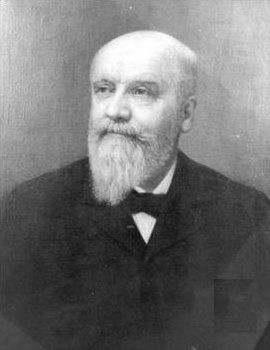|
Minnie M. Cox
Minnie M. (Geddings) Cox (1869–1933) was an American teacher who was appointed the first Black postmaster in Mississippi, following closely behind Anna M. Dumas, who was appointed to the same position in 1872 in Covington, Louisiana. Though she made national headlines after President Theodore Roosevelt refused to release her from her position after threats of violence from whites in Indianola, Cox was dedicated to equal rights in Mississippi. Responding to the disparities in resources available to Black citizens for banking and insurance, she opened her own bank and insurance companies to protect their assets. Early life Minnie M. Geddings was born in 1869 to Mary Geddings and William Geddings in Lexington, Mississippi. Though not much is known about her early life, it is possible that her family fared better than many other Black families in the Mississippi Delta as her parents owned a restaurant and she was able to attend Fisk University, a Historically Black University in ... [...More Info...] [...Related Items...] OR: [Wikipedia] [Google] [Baidu] |
Fisk University
Fisk University is a private historically black liberal arts college in Nashville, Tennessee. It was founded in 1866 and its campus is a historic district listed on the National Register of Historic Places. In 1930, Fisk was the first African-American institution to gain accreditation by the Southern Association of Colleges and Schools (SACS). Accreditations for specialized programs soon followed. It is the oldest institution for higher education in Nashville. History Founding Fisk Free Colored School opened on January 9, 1866, shortly after the end of the Civil War. It was founded by John Ogden, Erastus Milo Cravath, and Edward Parmelee Smith of the American Missionary Association for the education of freedmen in Nashville. Fisk was one of several schools and colleges that the association helped found across the South to educate freed slaves following the Civil War. The school is named for Clinton B. Fisk, a Union general and assistant commissioner of the Freedmen ... [...More Info...] [...Related Items...] OR: [Wikipedia] [Google] [Baidu] |
Smithsonian Institution
The Smithsonian Institution ( ), or simply the Smithsonian, is a group of museums and education and research centers, the largest such complex in the world, created by the U.S. government "for the increase and diffusion of knowledge". Founded on August 10, 1846, it operates as a trust instrumentality and is not formally a part of any of the three branches of the federal government. The institution is named after its founding donor, British scientist James Smithson. It was originally organized as the United States National Museum, but that name ceased to exist administratively in 1967. Called "the nation's attic" for its eclectic holdings of 154 million items, the institution's 19 museums, 21 libraries, nine research centers, and zoo include historical and architectural landmarks, mostly located in the District of Columbia. Additional facilities are located in Maryland, New York, and Virginia. More than 200 institutions and museums in 45 states,States without Smithsonian ... [...More Info...] [...Related Items...] OR: [Wikipedia] [Google] [Baidu] |
African-American Businesspeople
African Americans (also referred to as Black Americans and Afro-Americans) are an ethnic group consisting of Americans with partial or total ancestry from sub-Saharan Africa. The term "African American" generally denotes descendants of enslaved Africans who are from the United States. While some Black immigrants or their children may also come to identify as African-American, the majority of first generation immigrants do not, preferring to identify with their nation of origin. African Americans constitute the second largest racial group in the U.S. after White Americans, as well as the third largest ethnic group after Hispanic and Latino Americans. Most African Americans are descendants of enslaved people within the boundaries of the present United States. On average, African Americans are of West/Central African with some European descent; some also have Native American and other ancestry. According to U.S. Census Bureau data, African immigrants generally do not self-iden ... [...More Info...] [...Related Items...] OR: [Wikipedia] [Google] [Baidu] |



